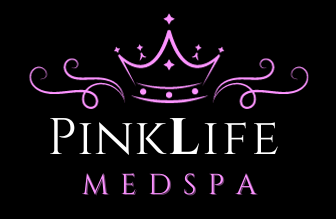Toxic Relationships - Their Impact on Hormone Balance and Wellness
Navigating through life's complexities often involves building and maintaining various relationships. However, not all relationships contribute positively to our well-being. Toxic relationships, whether with friends, family, or romantic partners, can significantly impact our mental and physical health, particularly affecting our hormone balance and overall wellness.
Understanding Toxic Relationships
A toxic relationship is characterized by behaviors that are emotionally and, sometimes, physically damaging to one party. It often involves patterns of manipulation, control, neglect, or abuse. The consistent stress and emotional turmoil experienced in such relationships trigger our body's stress response, unleashing a cascade of physiological changes, primarily in our hormonal systems.
Hormonal Havoc
When we are in a state of constant stress or emotional distress, our body releases higher levels of cortisol, the primary stress hormone. Prolonged exposure to elevated cortisol levels can disrupt almost all your body's processes. This disruption can result in numerous health issues, including anxiety, depression, digestive problems, heart diseases, sleep disorders, weight gain, memory and concentration impairment, and impaired immune function.
Additionally, chronic stress can lead to hormonal imbalances like thyroid disorders and menstrual irregularities. It can exacerbate pre-existing conditions such as polycystic ovary syndrome (PCOS) and endometriosis, further impacting a woman's reproductive health.
The Mind-Body Connection
The mind-body connection plays a crucial role in how toxic relationships affect our physical health. The emotional strain of being in such a relationship can lead to unhealthy coping mechanisms, such as poor eating habits, physical inactivity, or substance abuse, which further deteriorate overall health.
Skin Deep
Our skin is often a reflection of our internal state, and the stress from toxic relationships can manifest in various skin problems. Conditions like acne, eczema, rosacea, and psoriasis can be exacerbated by stress. Furthermore, chronic stress can accelerate the aging process, leading to early wrinkles and fine lines.
The Path to Healing
Breaking free from a toxic relationship is the first step towards healing, both emotionally and physically. The journey of recovery involves several key steps:
Recognition and Acknowledgement: Identifying that a relationship is toxic and acknowledging its impact on your life is critical.
Setting Boundaries: Establishing and maintaining healthy boundaries is crucial for emotional and physical well-being.
Seeking Support: Professional help from therapists or counselors can provide guidance and support through the healing process.
Self-Care: Engaging in activities that promote relaxation and stress reduction, such as yoga, meditation, and regular exercise, can help restore hormonal balance and overall health.
Nutritional Balance: Eating a balanced diet rich in nutrients supports the body’s recovery from prolonged stress.
Restorative Sleep: Quality sleep is essential for the body’s healing process, including hormonal regulation and skin rejuvenation.
The impact of toxic relationships extends beyond emotional distress – it penetrates deep into our physiological state, affecting our hormonal balance and overall wellness. Recognizing these relationships and taking steps to distance ourselves from their negative impact is vital for our health. By prioritizing our well-being and embracing self-care, we can recover and restore balance in our lives.

